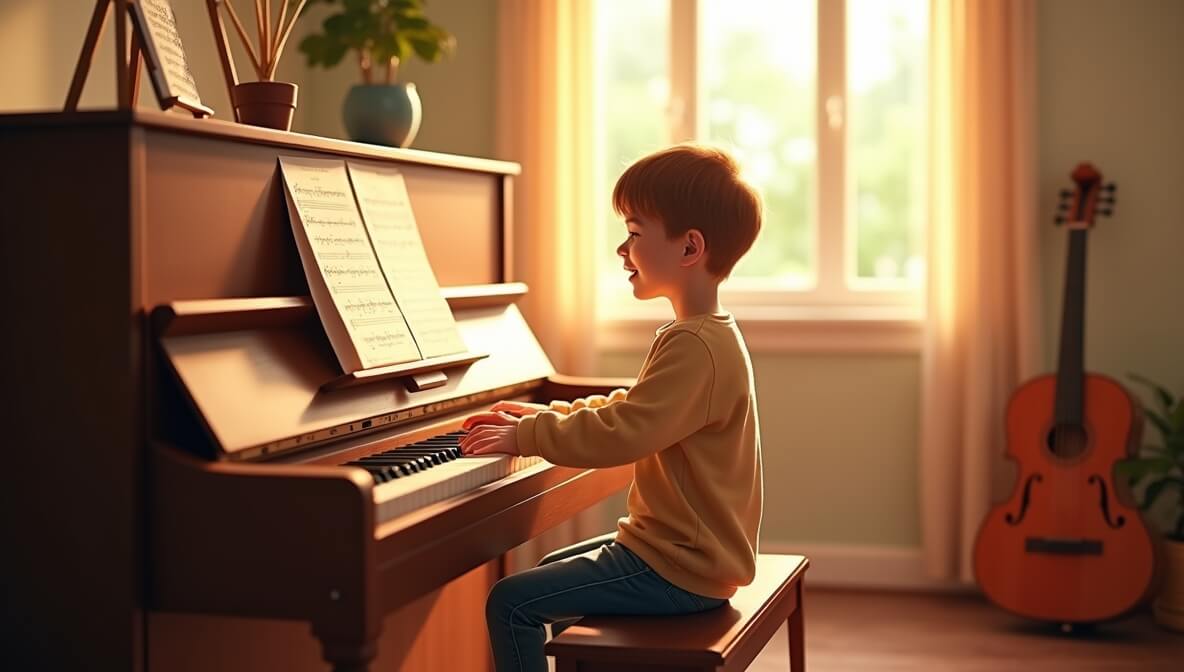August 14, 2025

Choosing your first musical instrument can feel like a major decision — and for good reason. It sets the tone (pun intended) for how you'll connect with music, develop your skills, and even stay motivated. For many beginners, the piano tops the recommendation lists. It’s praised as the perfect entry point into the world of music — but is it the right choice for you?
Let’s take a detailed look at the real benefits and limitations of learning piano first, along with expert insights and beginner-friendly alternatives.
The piano’s layout is visually intuitive. All 88 keys are arranged from low to high pitch in a linear, repeating pattern of white and black keys. Each note is fixed and visible — there’s no guesswork in finding pitches, like on a violin or guitar.
This makes it an ideal instrument for learning theory, including:
Learn how the piano supports early theory learning in The Ultimate Guide to Music Reading for Beginners.
With wind or string instruments, making a pleasant sound takes practice. With piano, just press a key — you get an in-tune, full-bodied tone immediately.
This gives instant gratification, which is especially motivating for children or absolute beginners. It makes early progress feel rewarding, helping build confidence.
The piano teaches you to play both melody and harmony at the same time using both hands. This develops:
If you later transition to composition, music production, or another instrument, this foundation is a massive advantage.
Interested in producing your own music? Learn more in Understanding Audio Interfaces — Gateway to High-Quality Sound.
Piano is found in:
It’s also a core compositional tool in music theory education and film scoring — many composers use it as their primary sketching instrument.
Unlike a guitar or ukulele, you can’t just throw a piano in a backpack.
If you plan to jam with friends or travel often, this can be a dealbreaker.
On a budget? Compare with Building Your Home Studio — Essential Gear and Setup Guide for alternatives in music tech.
While the piano is excellent for theory and ear training, it doesn’t teach:
If your musical goals involve expressive playing styles (e.g., slide guitar, flute solos, violin vibrato), the piano won’t offer much in that area.
For some, learning two staves (treble and bass clef) and coordinating two hands simultaneously can be daunting.
This mental load isn’t impossible, but it’s worth noting if you’re seeking a simpler entry point.
The piano is an excellent choice if you:
If piano isn’t the perfect match, consider:
Explore guitar tone and playability in Why Guitar Tone Matters — and How to Shape Yours
Learn more in Digital Audio Workstations Explained
Studies show that playing piano:
Playing piano isn’t just fun — it’s literally brain training.
YES, if you want:
BUT NO, if you:
In the end, the best instrument is one that excites you enough to keep playing every day. For many people, the piano is the ideal start — but it’s not the only great choice.
Stay up to date with the latest tips, expert insights, product reviews, and step-by-step guides to help you grow, create, and succeed—no matter your industry or passion.